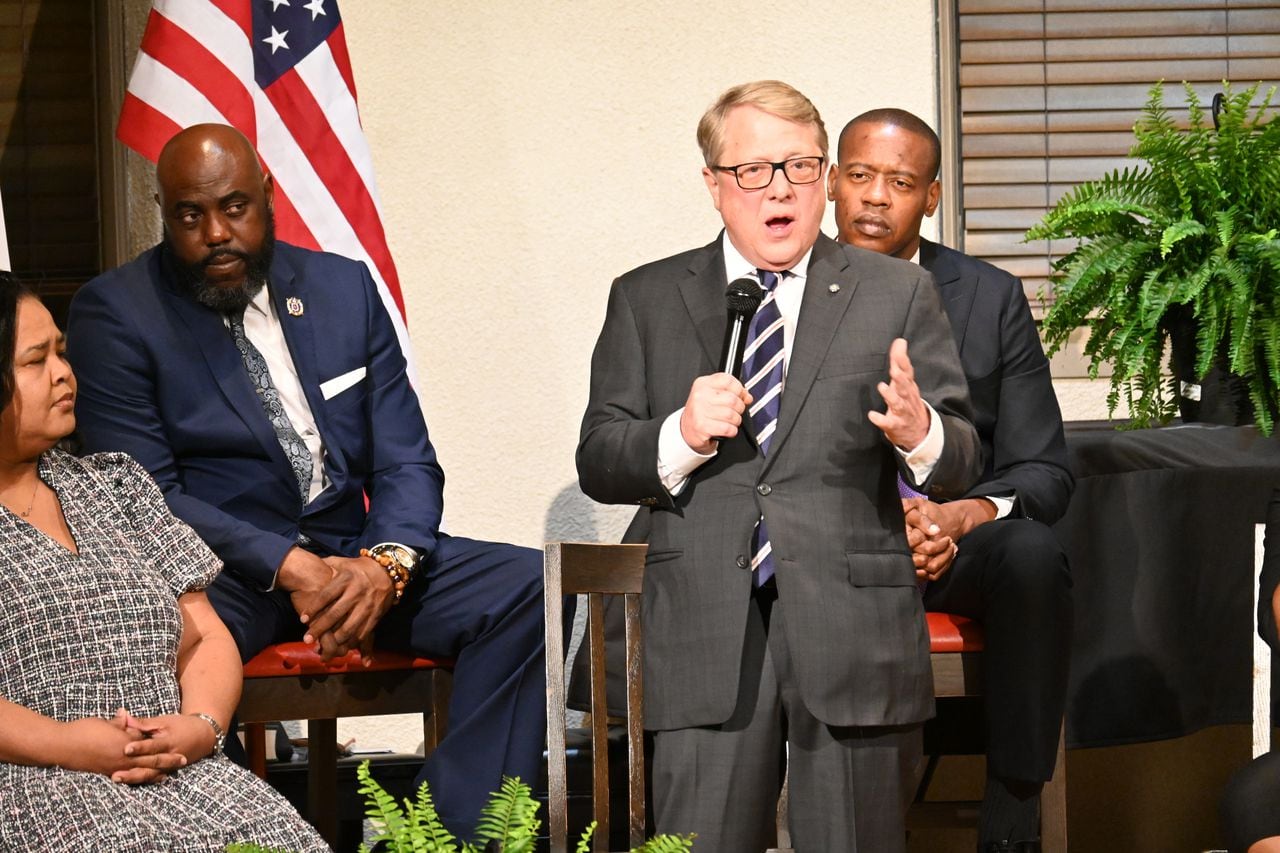Whitmire: Alabama congressional race reveals what’s broken with American politics
This is an opinion column.
Something different?
The newly drawn Congressional District 2 was supposed to be something different in Alabama — a purple district where Black voters could have their voices heard. But instead, it might be showing us something else — how broken our political system has become, so much so that capable, eager young leaders will flock to a district where they don’t live to compete for a rare seat up for grabs.
Shomari Figures, who now leads the Democratic field going into the runoff, grew up in Mobile, the son of a prominent political family, but until very recently he lived in Washington, D.C., where he’s been for a while now.
Anthony Daniels, who finished second and will face Figures in a runoff, has ties to Bullock County but lives in Huntsville — almost three hours drive away from District 2. He couldn’t vote for himself on Tuesday.
He wasn’t the only one who couldn’t vote for himself. Merika Coleman and Juandalyn Givan, both state lawmakers who live in Jefferson County, finished well behind the frontrunners.
Meanwhile, Napoleon Bracy, who actually lives in the district and has this whole time, finished third.
The Republican homebodies running for their nomination fared slightly better. Both of their top finishers — Dick Brewbaker and Caroleene Dobson — appear to live within district lines, although Dobson recently returned after having grown up there. But the GOP had outside interlopers trying to run, too, including third-place finisher Greg Albritton.
Here’s what troubles me about this race: It shows how able, qualified aspiring leaders are afraid to run in the places they live, either because they are gerrymandered into districts that would never support them, or they would have to run against politically invulnerable incumbents.
Gerrymandering and the power of incumbency have stunted American politics.
I don’t have much critical to say of U.S. Rep. Terri Sewell, D-Birmingham, but I can’t point to any accomplishments that warrant her holding the District 7 office forever. That seat doesn’t belong to her just because she got to it first. It’s supposed to be on loan from us, the voters. However, the power of incumbency makes a challenge against her all but a fool’s errand, leaving quality candidates looking elsewhere.
Likewise, I think Daniels is smart, young and ambitious — but there was never a chance he could convince voters in north Alabama’s District 5 to give him a fair hearing against a Republican.
People who like the system the way it is might shrug their shoulders and say that’s politics, but it’s worth considering what the consequences are. There has been no shortage of head-scratching pieces of late, wondering how we ended up with the two leading presidential candidates we have.
Why don’t we have better choices?
Look down-ballot, and you can see why.
A strong democracy requires an abundance of choice, but our political system doesn’t nurture options for voters. It limits them. It prunes to the root, never letting stronger shoots grow.
If there’s a “but” to be had here — a hope for something genuinely different — it wasn’t in Tuesday night’s vote totals, but in turnout. Weak as it was, only 160 voters separated Democratic turnout in District 2 from Republican turnout.
Alabama might have a truly purple district. With Trump’s ability to draw Republicans to the polls, a Democrat winning that race come November is not a done deal.
After the party runoffs run their course in a few weeks, Alabamians will still have a choice to make.
Choice. It’s been so long since we’ve had one.
It’s not something new.
But something different.
Kyle Whitmire is the 2023 winner of the Pulitzer Prize for commentary. You can follow him on Threads here and subscribe to his weekly newsletter, Alabamafication.
